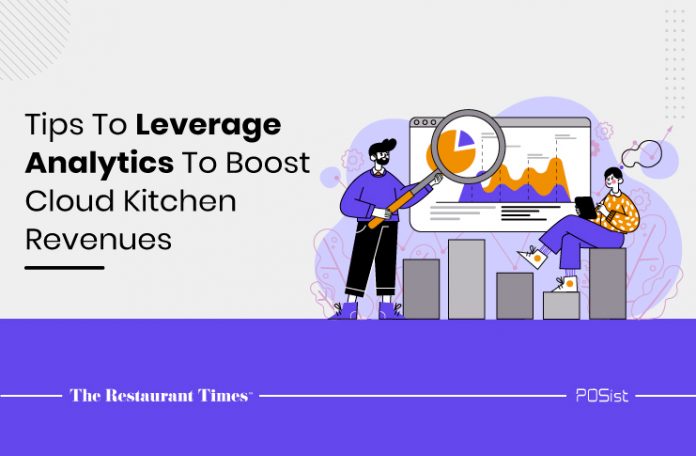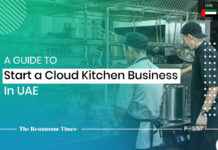Competition in the UAE cloud kitchen market is growing intense day by day and the restaurateurs are clearly under pressure to maintain their position. Surviving in the industry is not an easy task currently. It requires looking at every little aspect of your business – from sourcing to billing and reconciliation – meticulously. Fortunately, with the introduction of technology, you can measure multiple cloud kitchen metrics for the overall development of your cloud kitchen business.
This article will highlight the ways in which analyzing the data and metrics can bring out the loopholes in your cloud kitchen business management. From customer-related aspects to matters that concern stock and inventory management, proper analysis of metrics can boost transparency and performance across a cloud kitchen business.
6 Ways Analyzing Data & Metrics Helps Cloud Kitchen Business
Even though introducing analytics might not translate into revenue growth instantly, it will make the process easier. In the long run, these incremental improvements will add up to big results.
Let us look at how POS software can be used to produce data-based insights using metrics and boost cloud kitchen revenue.
1. Manage Stock And Inventory
Stock and inventory constitute a major part of cloud kitchen operations and demand efficient management. Mismanagement of raw materials means wasted funds, which is not good for any business. In case you have multiple brands operating under one space, it is necessary to track the consumption per brand to calculate food costs. Manual tracking makes the inventory management process cumbersome for cloud kitchens. However, the detailed inventory data provided by a cloud kitchen POS shows the exact consumption of individual items across individual brands.
Furthermore, it is important to be aware of the shelf life of perishable items and use them before their expiration date. By tracking the exact consumption of raw materials, it becomes possible to keep a check on pilferage. You can easily know whether your inventory is being wasted in the pre-or post-preparation stage and manage it accordingly.
2. Enhance Customer Relationships
Maintaining healthy customer relationships is critical for the survival of cloud kitchens. Since they are dedicated to only deliveries, cloud kitchens have no physical interaction with their customers. This makes it tough for them to build a good rapport with patrons. Thus, to retain customers, you must have a sound POS system that consists of an efficient CRM module.
A sound CRM system can do wonders for your cloud kitchen business as it stores the data centrally and thus enables you to understand your customer demographics. It provides you with essential information like order preferences, customer habits, etc., through which you can personalize the experience of your customers. Observing the eating habits of your customers, you can dish out personalized messages and discounts to them. For instance, if a customer frequently orders pizza from your outlet, you can send personalized discount coupons to them.
3. Forecast Trends
Being a restaurateur, it is important for you to be aware of the latest market trends. Having access to daily, weekly, monthly, and even yearly sales put forth the actual results of cloud kitchen operations. Based on these reports, you can figure out what is trending amongst your customers.
For instance, if you observe an increase in the sales of vegan products, it is quite likely that the customer preferences are shifting towards vegan products. Recognizing these trends and working around them proves to be fruitful for your cloud kitchen business.

4. Optimize The Menu
Since various metrics are used to measure the performance of the items on the menu, it becomes easy to know which is the most favoured item on the menu, and which item does not make any sales at all. Based on the data, you can analyze what sells in the market. The non-selling items can be struck off the menu so that they don’t incur inventory costs. They can also be replaced with other items that are more profitable. All these manoeuvres help in better inventory management, better menu engineering and reduce wastage.
5. Control Costs
Controlling costs is a challenging task for every cloud kitchen owner. It is vital to ensure that the invested money is utilized the right way. Mismanagement of finances is one of the major reasons why most cloud kitchen businesses fail within a year of their establishment. By analyzing metrics like food cost percentage, prime costs, etc., you can know whether your invested funds are generating profits or not.
Metrics are extremely helpful in tracking information related to inventory management. A proper analysis of these metrics can bring out multiple positive results. For instance, you will come to know where the raw materials are wasted, where is the waste getting generated, what recipe is not essential on the menu.
Furthermore, metrics can be utilized independently as well as based on attendance register entries to measure the performance of the employees. The under-performing and non-competent employees can be replaced with new joiners who can bring profit to the cloud kitchen business.
6. Measure Productivity
Measuring the productivity of a cloud kitchen is as important as running it. You need to make sure that your inputs are generating adequate outputs on the financial, marketing, and operating fronts of your cloud kitchen business. Tracking and analyzing the metrics like sales, average delivery time, etc. is essential to give the exact picture of the direction in which your cloud kitchen business is going. Many such metrics are available in a POS system in the form of detailed reports which can be leveraged to measure productivity.
All these factors have a common objective of boosting sales and thereby enhancing the revenue of your cloud kitchen business. Now that you are aware of the importance of tracking metrics, it is time to deploy a versatile POS system to calculate the metrics like Prime Cost, Cost of Goods Sold (CoGS), Labor Cost Percentage, Food Cost Percentage, etc., automatically to improve your cloud kitchen business on all levels.

















